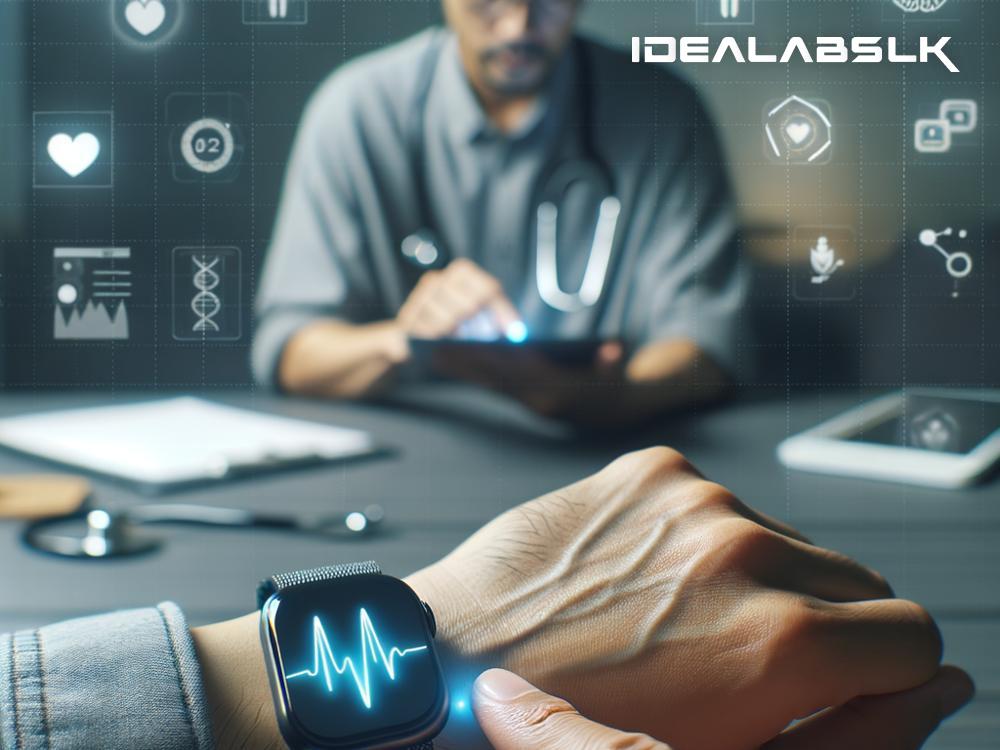Unlocking the Mind: How Technology is Elevating Mental Health Care
In the hustle and bustle of today's world, taking care of our mental health has become more crucial than ever. Luckily, the march of technological progress hasn't left this important aspect of our lives behind. From AI-powered therapy sessions to wearables that monitor our emotional well-being, technology is transforming the landscape of mental health care in ways we could have hardly imagined a decade ago. Let's delve into how these advancements are making a difference.
AI to the Rescue: Therapy at Your Fingertips
Imagine having a therapist who is available 24/7, doesn't judge, and is ready to listen to you anytime. This is no longer a mere figment of the imagination, thanks to Artificial Intelligence (AI). AI-powered chatbots and apps have emerged as a beacon of hope for those who might feel intimidated by traditional therapy or cannot access it due to financial constraints or geographical limitations.
These digital therapists are equipped with algorithms that allow them to understand human emotions and respond in comforting ways. While they don't replace human therapists, they do offer a stepping stone for many individuals who are seeking help or need someone to talk to in moments of distress. Apps like Woebot and Wysa are leading the way, offering users a chance to navigate through their emotions with guided conversations.
Wearable Devices: A Pulse on Emotional Health
Imagine wearing a bracelet or a watch that doesn't just tell time or count your steps but also keeps an eye on your emotional well-being. Wearable technology for mental health is here, bridging the gap between mental health care and everyday life. These devices can monitor indicators like heart rate, sleep patterns, and even stress levels to provide real-time data about our emotional state.
This real-time monitoring offers a plethora of benefits. It can warn an individual when their stress levels are too high, suggesting they take a break or meditate. Some wearables come with built-in features to guide users through breathing exercises or mindfulness techniques when it detects elevated stress levels. By keeping an invisible eye on our emotional health, these wearables encourage a proactive approach to managing our mental well-being.
Virtual Reality: A New Dimension of Therapy
Virtual Reality (VR) technology is not just for gamers anymore; it's making waves in the field of mental health as well. Imagine putting on a VR headset and being transported to a peaceful beach or a serene forest, all from the comfort of your home. VR therapies are creating immersive environments where individuals can learn to manage anxiety, confront phobias, or practice social skills in a safe, controlled setting.
For instance, therapists are using VR to help people with PTSD (Post-Traumatic Stress Disorder) by gradually exposing them to their triggers in a controlled environment, thereby reducing their sensitivity over time. Similarly, those with social anxiety can practice public speaking or social interactions in virtual settings to build confidence.
Mobile Apps: Wellness at Your Fingertips
The smartphone in your pocket can be a powerful tool for managing mental health. A wide array of mobile apps offer services ranging from mood tracking and stress management to meditation and sound sleep. These apps make mental health care accessible, allowing users to manage their well-being on their own terms.
Apps like Calm and Headspace have become popular for their guided meditations, whereas others like Moodfit and Sanvello help users track their mood, set goals, and identify patterns in their emotional health. The beauty of these apps lies in their convenience, offering support and resources no matter where you are.
The Road Ahead
As we journey forward, the integration of technology in mental health care continues to offer promising avenues for providing support, understanding, and management tools for mental well-being. While technology will never replace the human touch and expertise of practicing therapists, it can significantly supplement traditional therapies, making mental health care more accessible, engaging, and effective.
It's a brave new world where our digital companions can listen, understand, and guide us through the complexities of our emotions. As we embrace these technological advancements, we edge closer to a future where taking care of our mental health is as integral and seamless a part of our lives as taking care of our physical health.
In conclusion, the intersection of technology and mental health care is a burgeoning field, offering hope and help to those who need it the most. By leveraging AI, wearable devices, VR, and mobile apps, we can make strides toward a society where mental health is prioritized, and support is always within reach. The future of mental health care is here, and it's bright, accessible, and tech-savvy.

